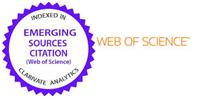¿Justicia divina? Críticas teológicas a los procedimientos judiciales para la represión de la brujería en East Anglia (1645-1647) y Salem (1692-1693)
Resumen
Los procesos judiciales por brujería ocurridos en East Anglia (Inglaterra) entre 1645-1647 y aquellos centrados en Salem (Massachusetts) en 1692-1693 se destacaron a nivel regional tanto por su extensión temporal como por la cantidad de personas involucradas. Ambos episodios se caracterizaron por la introducción de evidencias y métodos de interrogación hasta ese momento no aceptados como elementos probatorios durante los juicios. Esto provocó la respuesta crítica del teólogo y ministro puritano John Gaule (c.1603-1687) en Inglaterra, y la de su colega Samuel Willard (1640-1707) en la colonia americana. Se plantea como hipótesis que los dos autores recurrieron a argumentos teológicos para rechazar la validez de las pruebas utilizadas para condenar a los acusados, aunque sin negar la existencia de los brujos ni la necesidad de castigarlos.
Palabras clave
Referencias
Fuentes primarias
GAULE, J., (1646). Select Cases of Conscience touching Witches and Witchcraft, Londres.
HOPKINS, M., (1647). The Discovery of Witches, Londres.
MATHER, C., (1689). Memorable Providences, relating to Witchcrafts and possessions, Boston.
MATHER, C., (1692). The Return of severall Ministers, Boston.
MATHER, C., (1693). Wonders of the Invisible World, Boston.
MATHER, C., (1689). A Discourse on Witchcraft, Boston.
MATHER, I., (1693). Cases of Conscience concerning evil spirits, Boston.
ROSENTHAL, B., ed. (2009). Records of the Salem Witch-Hunt, Cambridge.
STEARNE, J., (1648). A Confirmation and Discovery of Witches, Londres.
WILLARD, S., (1692). Some Miscellany Observations On Our Present Debates Respecting Witchcrafts, in a Dialogue Between S. & B, Filadelfia.
Fuentes Secundarias
ALMOND, P., (2011). England’s First Demonologist. Reginald Scot & The Discoverie of witchcraft, Londres: I. B. Tauris.
ALMOND, P., (2014). The Devil. A New Biography, Ítaca: Cornell University Press.
BAKER, E., (2015). A Storm of Witchcraft. The Salem Trials and the American Experience, Oxford: Oxford University Press.
BEHRINGER, W., (2004). Witches and Witch-Hunts. A Global History. Cambridge: Polity Press.
BETHENCOURT, F., (1993). “Portugal: A Scrupulous Inquisition”. En B. Ankarloo y G. Henningsen (eds.), Early Modern European Witchcraft. Centres and Peripheries (pp. 403-422). Oxford: Clarendon Press.
BOSTRIDGE, I. (1997). Witchcraft and its transformations c. 1650-1750. Oxford: Clarendon Press.
BOYER, P., Y NISSENBAUM, S., (2003). Salem Possessed. The Social Origins of Witchcraft, Cambridge: Harvard University Press.
BUNN, I., y GEIS, G., (1997). A Trial of Witches. A seventeenth-century witchcraft prosecution. Londres y Nueva York: Routledge.
CLARK, S., (1997). Thinking with Demons. The Idea of Witchcraft in Early Modern Europe. Oxford: Clarendon Press.
CLARK, S., (2007). Vanities of the Eye. Vision in Early Modern Europe. Oxford: Oxford University Press.
DARR, O., (2011). Marks of an Absolute Witch: Evidentiary Dilemmas in Early Modern England. Londres: Routledge.
DE WAARDT, H., (2006). “Watching and Walking”. En R. Golden (ed.), Encyclopedia of Witchcraft. The Western Tradition (pp. 1183-1184). Santa Barbara: ABC Clio.
DURSTON, G., (2019). Crimen Exceptum. The English Witch Prosecution in Context. Sherfield: Waterside Press Ltd.
ELMER, P., (2016). Witchcraft, Witch-Hunting, and Politics in Early Modern England. Oxford: Oxford University Press.
GAREIS, I., “Spanish America”. En R. Golden (ed.), Encyclopedia of Witchcraft. The Western Tradition (pp. 1070-1073). Santa Barbara: ABC Clio.
GASKILL, M., (2005). Witchfinders: A Seventeenth Century English Tragedy. Londres: John Murray.
GASKILL, M., (2008). “Witchcraft and Evidence in Early Modern England.” Past & Present, Nº 198, pp. 33-70.
GODBEER, R., (1992). The Devil´s Dominion. Magic and Religion in Early New England. Cambridge: Cambridge University Press.
GOODARE, J., (2020). “Connecting Demonology and Witch-Hunting in Early Modern Europe”. En J. Goodare et al. (eds.), Demonology and Witch-Hunting in Early Modern Europe (pp. 345-381). Londres: Routledge, 2020.
HENNINGSEN, G., El abogado de las brujas. Brujería vasca e Inquisición española. Madrid: Alianza editorial.
L´ESTRANGE EWEN, C., (1933). Witchcraft and Demonianism: A Concise Account Derived from Sworn Depositions and Confessions Obtained in the Courts of England and Wales. Londres: Heath Cranton Limited.
LEVACK, B., (2006). The Witch Hunt in Early Modern Europe. Londres: Routledge.
LEVIN, D., (1985). “Did the Mather disagree about the Salem witch trials?.” Proceedings of the American Antiquarian Society, Nº 95, , pp. 19-37.
LOVEJOY, D., (1972). The Glorious Revolution in America. Hanover: Wesleyan University Press.
MACFARLANE, A., (1999). Witchcraft in Tudor and Stuart England. A Regional and Comparative Study. Londres: Routledge.
MÉNDEZ, A., (2020). “España a través de los ojos de un demonólogo inglés: leyenda negra, brujería y superstición en The Discoverie of Witchcraft (1584) de Reginald Scot”. Bulletin of Spanish Studies, Nº 5, pp. 701-727.
MONTER, W., (2013). “Witchcraft in Iberia”. En B. Levack (ed.), The Oxford Handbook of Witchcraft in Early Modern Europe and Colonial America (pp. 268-282). Oxford: Oxford University Press.
MOYER, P., (2020). Detestable and Wicked Arts. New England and Witchcraft in the Early Modern Atlantic World. Ítaca y Londres: Cornell University Press.
MUCHEMBLED, R., (2002). Historia del Diablo. Siglos XII-XX. México: Fondo de Cultura Económica.
NORTON, M.B. (2002). In the Devil´s Snare. The Salem Witchcraft Crisis of 1692. Nueva York: Vintage Books.
O`BRIEN, S., (2016). “The discovery of witches: Matthew Hopkins’s Defense of his Witch-Hunting Methods.” Preternature: Critical and Historical Studies on the Preternatural, Vol. 5, Nº. 1, pp. 29-58.
POCOCK, J., (2009). Political Thought and History: Essays on Theory and Method. Cambridge: Cambridge University Press.
PURKISS, D., (2006). The English Civil War. Papists, Gentlewomen, Soldiers, and Witchfinders in the Birth of Modern Britain. Nueva York: Basic Books.
RAY, B., (2015). Satan & Salem. The Witch-Hunt Crisis of 1692. Charlotesville: University of Virginia Press.
ROACH, M., (2004). The Salem Witch Trials. A Day-by-Day Chronicle of a Community Under Siege. Lanham: Taylor Trade Publishing.
ROSENTHAL, B., (1993). Salem Story. Reading the Witch Trials of 1692. Cambridge: Cambridge University Press.
SCHOLZ WILLIAMS, G., (2013). “Demonologies”. En B. Levack(ed.), The Oxford Handbook of Witchcraft in Early Modern Europe and Colonial America (pp. 69-83), Oxford: Oxford University Press.
SHARPE, J., (1996). Instruments of darkness. Witchcraft in England 1550-1750. Londres: Penguin.
SÖRLIN, P., (2006). “Witchfinders”. En R. GOLDEN (Ed.), Encyclopedia of Witchcraft. The Western Tradition (pp. 1206-1208). Santa Barbara: ABC Clio.
STANWOOD, O., (2011). The Empire Reformed. English America in the Age of the Glorious Revolution. Filadelfia: University of Pennsylvania Press.
TAUSIET, M., Y AMELANG, J., (eds.) (2001). El diablo en la Edad Moderna. Madrid: Marcial Pons.
THOMAS, K., (1970). “The Relevance of Social Anthropology to the Historical Study of English Witchcraft”. En M. Douglas (ed.), Witchcraft Confessions and Accusations (pp. 47-80), Londres: Routledge.
WEISMAN, R., (2006). “Spectral Evidence”. En R. Golden (ed.), Encyclopedia of Witchcraft. The Western Tradition (pp. 1074-1075). Santa Barbara: ABC Clio.
WEISMAN, R., (1984). Witchcraft, Magic, and Religion in 17th Century Massachusetts. Amherst: University of Massachusetts Press.
Enlaces refback
- No hay ningún enlace refback.
Copyright (c) 2023 Magallánica : revista de historia moderna

Este obra está bajo una licencia de Creative Commons Reconocimiento-NoComercial-CompartirIgual 4.0 Internacional.
 | Magallánica : Revista de Historia Moderna es editada por el Grupo de Investigación en Historia de Europa Moderna de la Facultad de Humanidades de la Universidad Nacional de Mar del Plata y por la Red de Historia Moderna ISSN 2422-779X (en línea)
|
La Dirección no se responsabiliza por las opiniones vertidas en los artículos firmados. | |
Resultados de evaluación: Magallánica... es evaluada por:
Magallánica...se encuentra en las siguientes bases de datos:
Miembro de:
| |



























